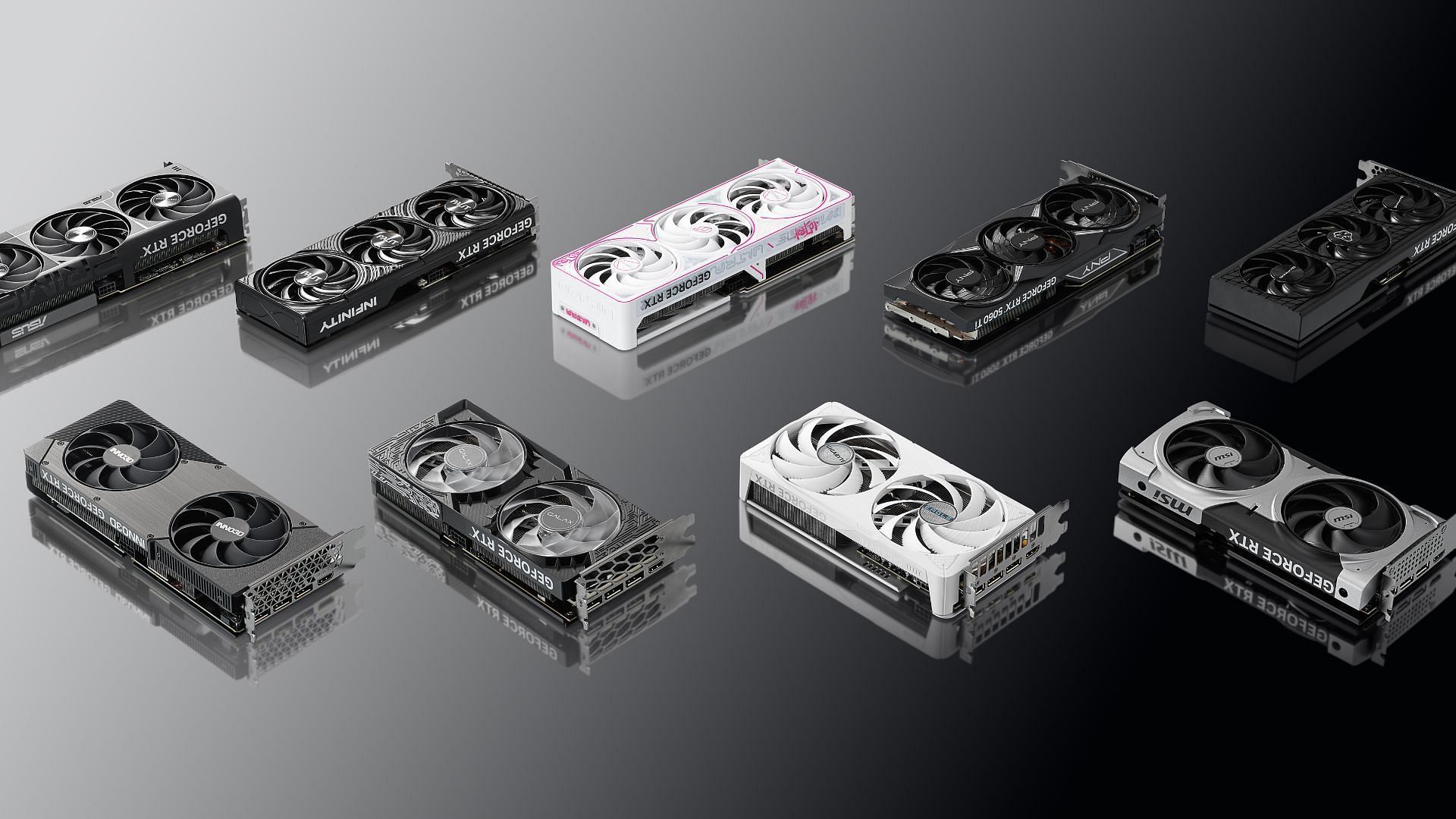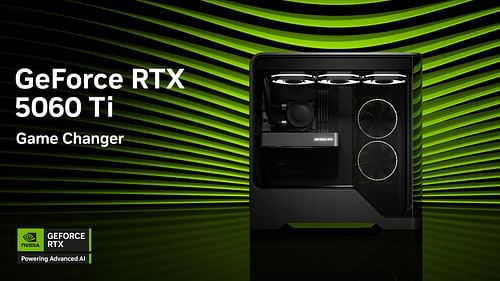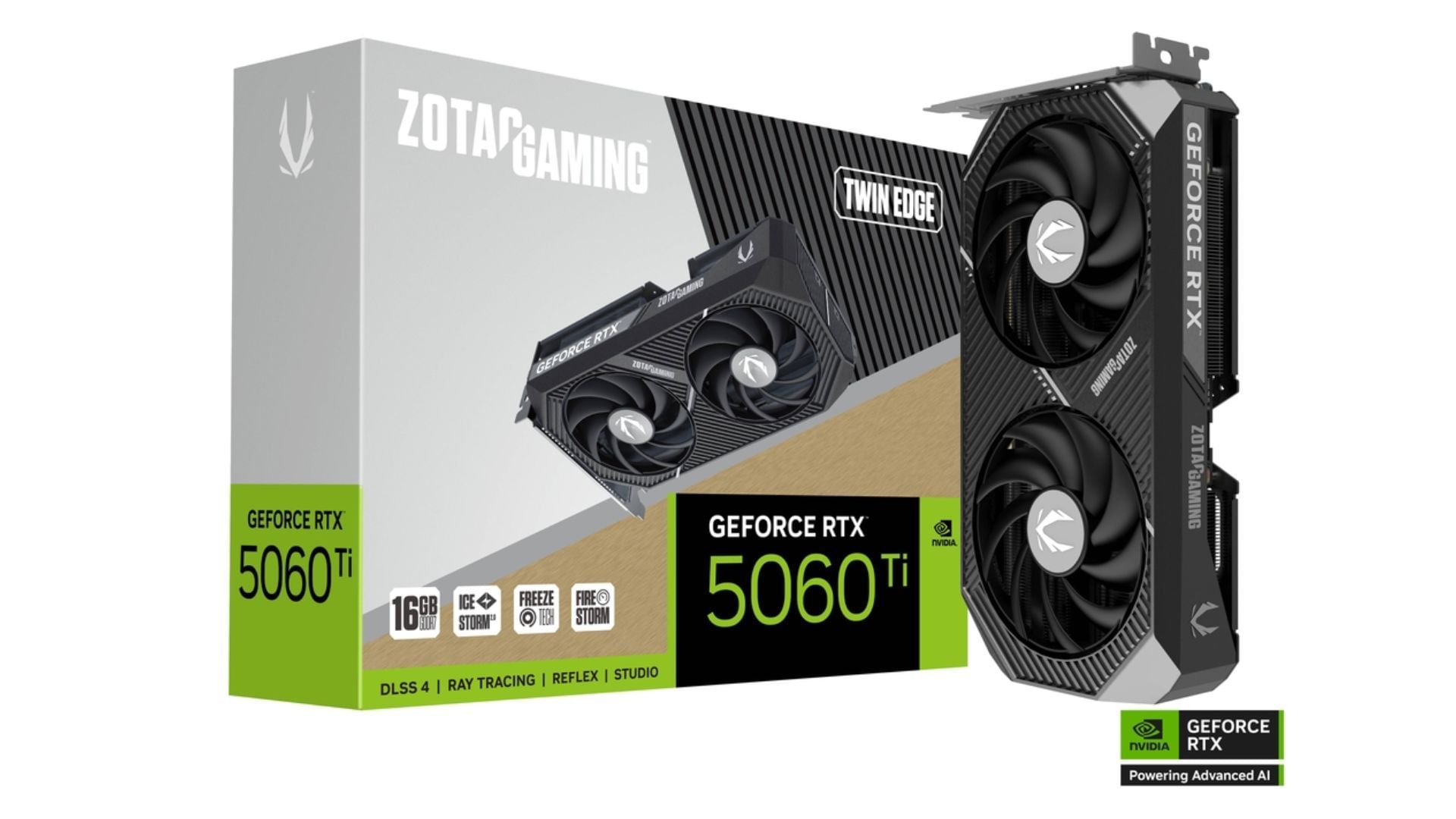
Nvidia RTX 5060 Ti 16 GB vs RTX 5060 Ti 8 GB: Which is the better gaming GPU?
The Nvidia RTX 5060 Ti is the latest 1080p gaming GPU from Team Green. Like the last generation, the cards are available in two variants: 8 and 16 GB. Besides improvements in rendering hardware (newer CUDA, Tensor, and RT cores), the 5060 Ti brings sweeping revisions. Key aspects include faster VRAM based on the GDDR7 standard, support for DLSS 4 multi-frame generation, and revised pricing. This makes the card a lucrative option for mid-range gamers looking for future-proofing.
However, which variant of the 5060 Ti should you buy? In this article, we try to answer that question.
The Nvidia RTX 5060 Ti 16 GB and RTX 5060 Ti 8 GB are similar cards, except their VRAM

The variants of the RTX 5060 Ti are very similar in terms of their underlying hardware. Let's look at their specs table before analyzing the differences in video memory.
Specs comparison
The hardware powering the two cards have very similar specs. The GPUs are based on the cut-down GB206 graphics processor. Both bundle 4,608 CUDA cores, 144 Texture Mapping Units (TMUs), 48 Render Output Units (ROPs), 144 Tensor Cores, and 36 RT cores. They feature 128 KB per SM of L1 cache and 32 MB of L2 cache.
The only difference between the two is the size of the video memory buffer. Both GPUs come with the same GDDR7 video memory standard at 28 Gbps effective bandwidth (substantially higher than the last generation's 18 Gbps buffer). However, the extra video memory on the $429 card helps it deliver a much larger bandwidth for storing larger textures and AI models. Despite the extra video memory, both cards have a power rating of 180W.
The detailed specs list of the two GPUs are as follows:
The prices of the two RTX 5060 Ti GPUs have been revised this generation, with both dropping despite featuring extra hardware and support for the latest AI upscaling technologies. You can pick up the 8 GB variant for $379, which is $20 less than the 4060 Ti 8 GB. The 16 GB card costs $429, cheaper than the Ada Lovelace variant by $70. This also reduces the gap between the two video cards to just $50.
Read more: Nvidia RTX 5080 gaming benchmarks: How does the GPU perform at 4K?
Why you should get the extra VRAM on the RTX 5060 Ti in 2025

The 8 GB VRAM started showing its age in early 2023. These days, you're almost bound to run into problems with this limited video memory capacity, especially in the latest titles such as Black Myth Wukong, Assassin's Creed Shadows, etc. These games easily demand over 10 GB of VRAM, even at 1080p, which puts cards with extra memory chips at an advantage.
However, Blackwell cards are slightly different. They have the added advantage of DLSS 4 multi-frame generation, which can make any choppy video game run at 100 FPS. However, the AI models powering this tech also occupy their own VRAM, leaving even less room for your game, which directly translates to a lower frame rate to multiply from.
Moreover, as your system uses more caching to handle the memory buffer problem, latency may become problematic. You might have a nice frame rate, but the game could still feel choppy and laggy.
Given that the RTX 5060 Ti 16 GB card will cost only $50 more, we recommend choosing that variant if you're looking for ample future-proofing. The GPU is built to last at least a few years while packing some headroom for light AI model training. However, we'll have to wait for the market launch to see its actual pricing.